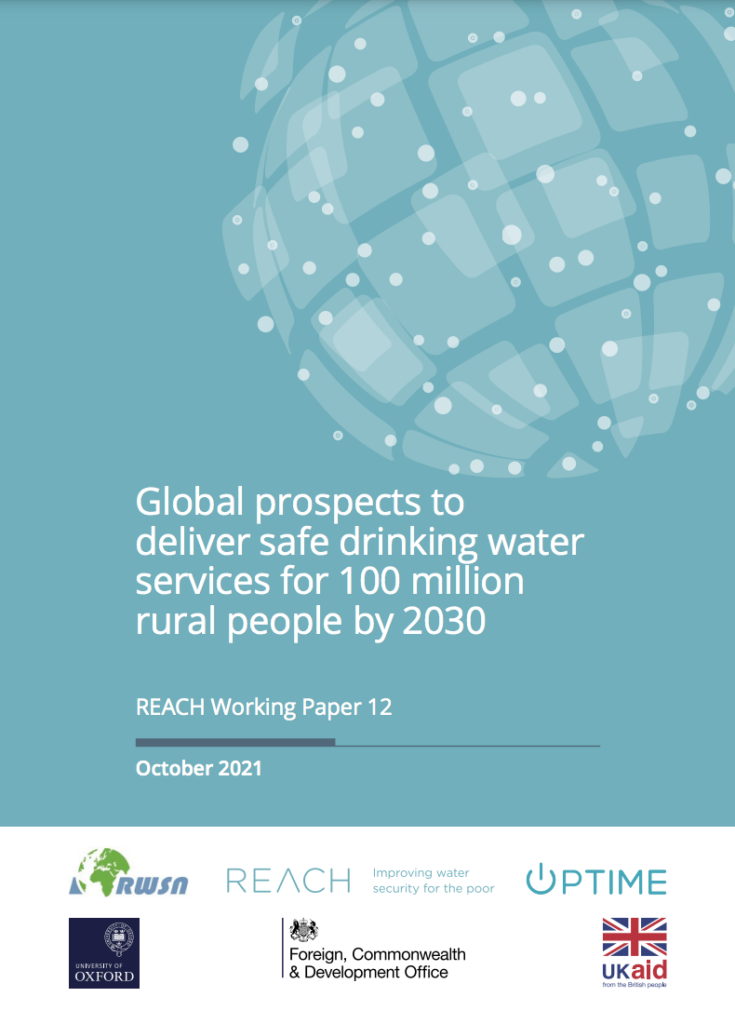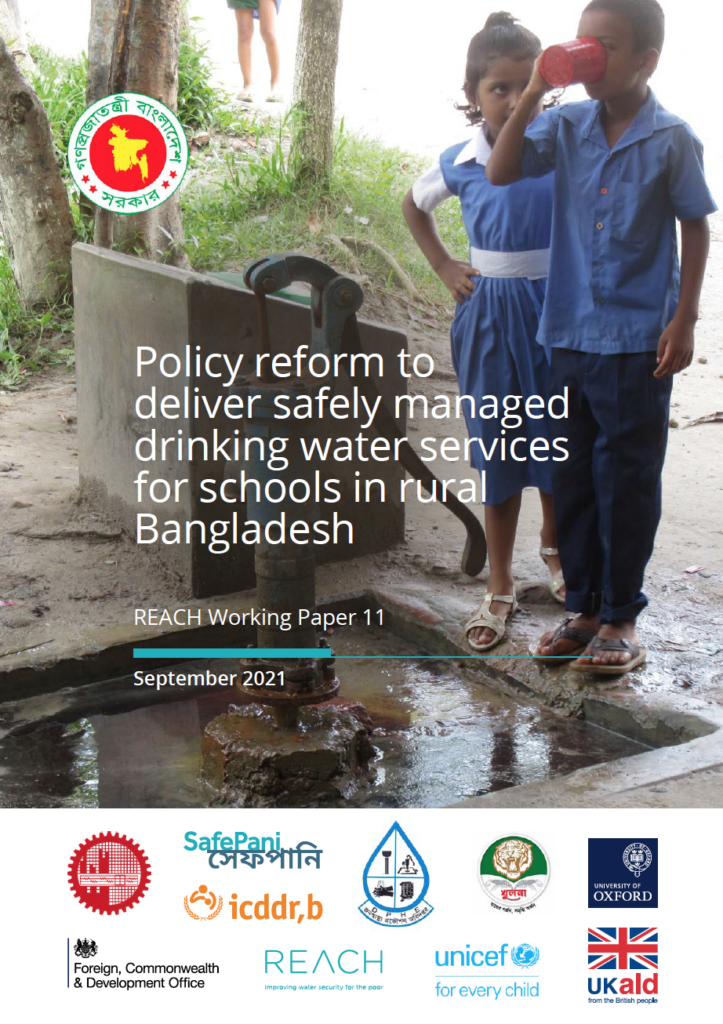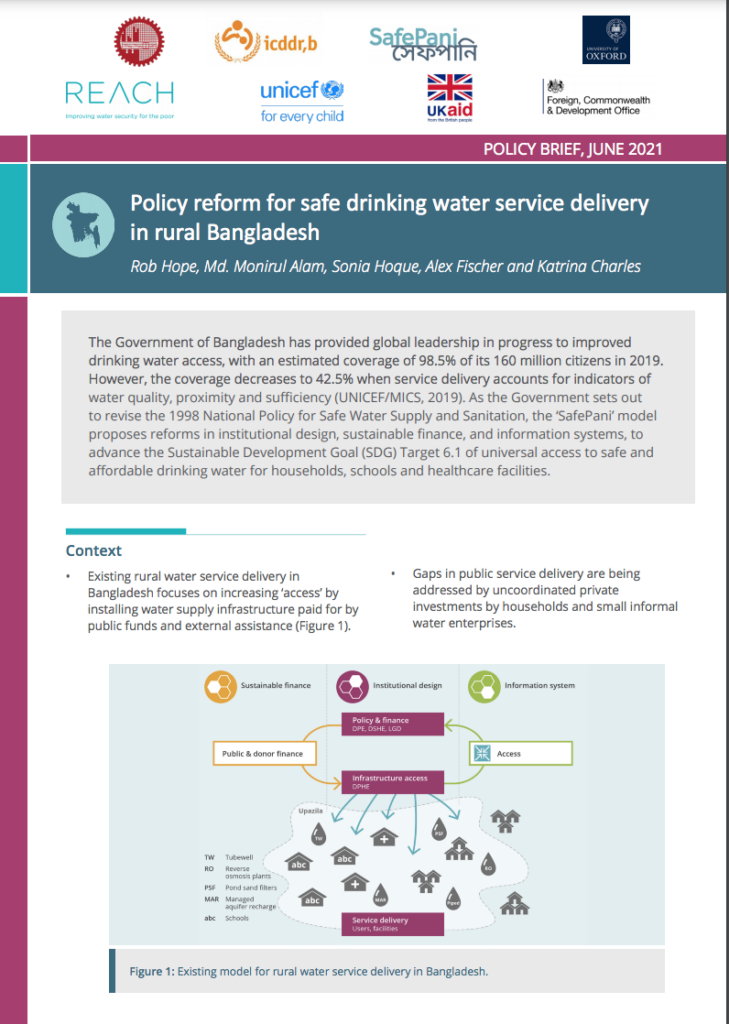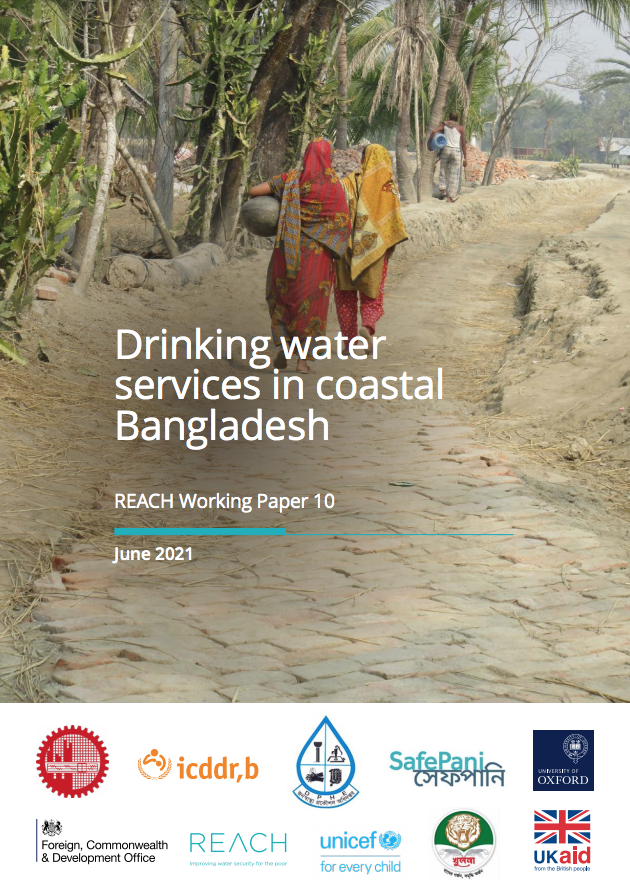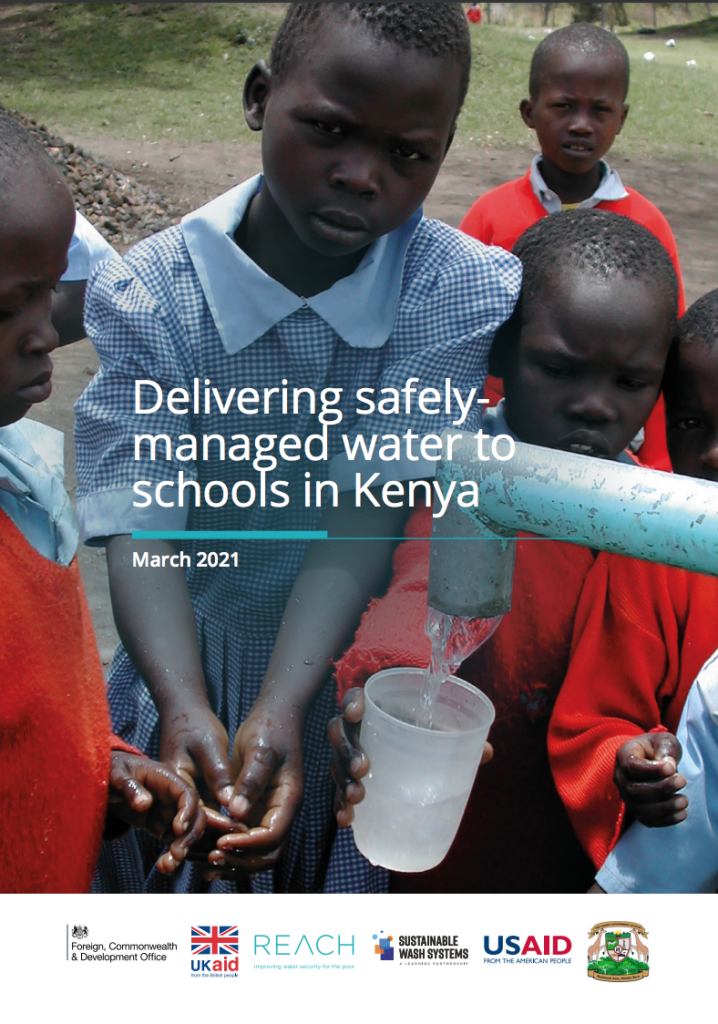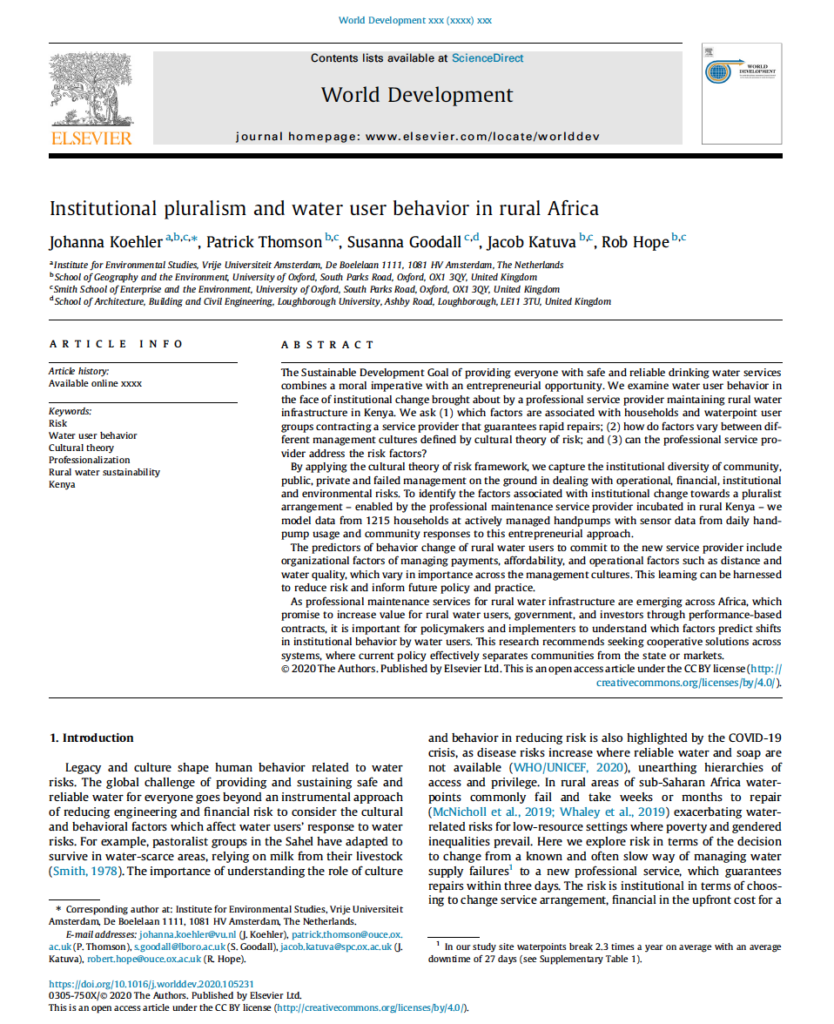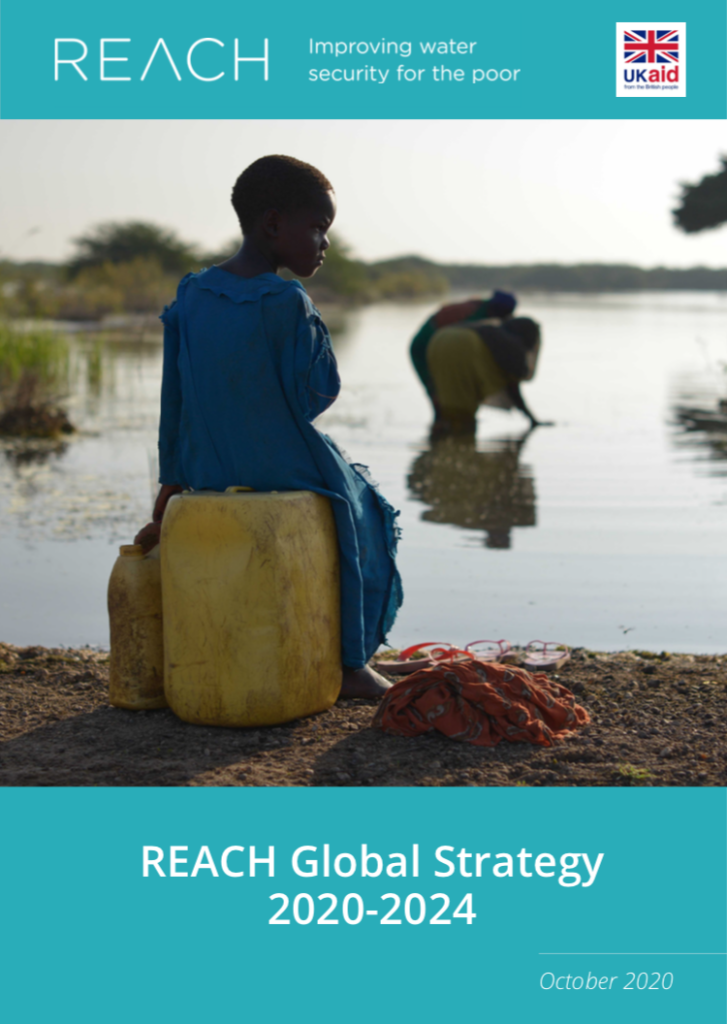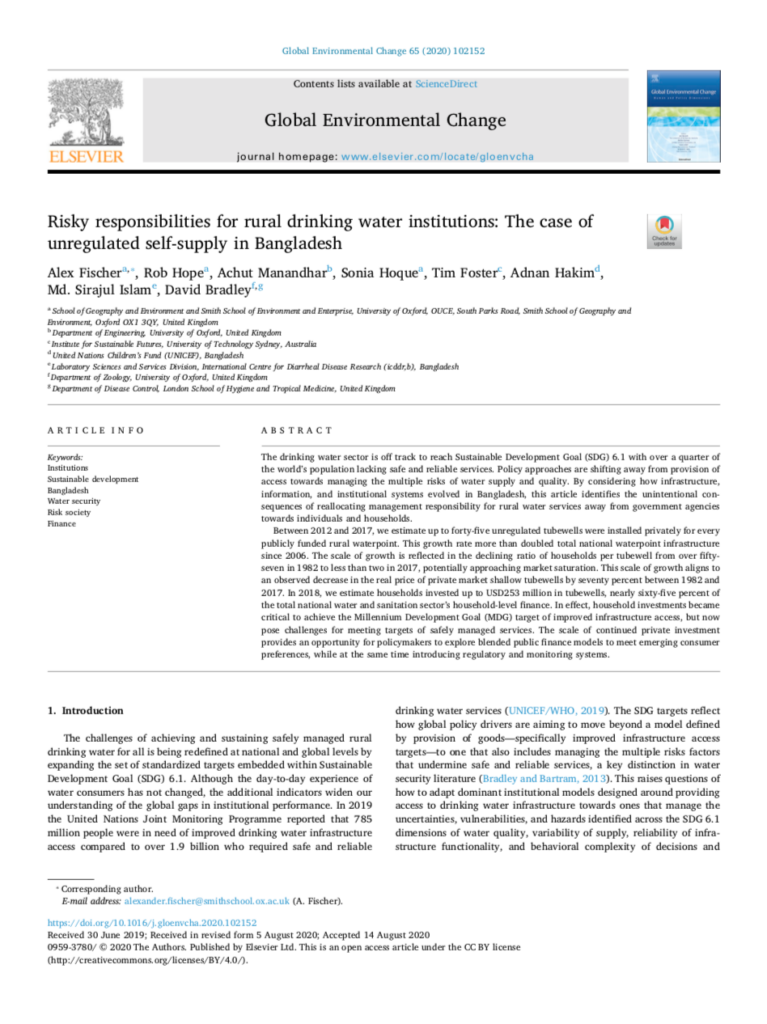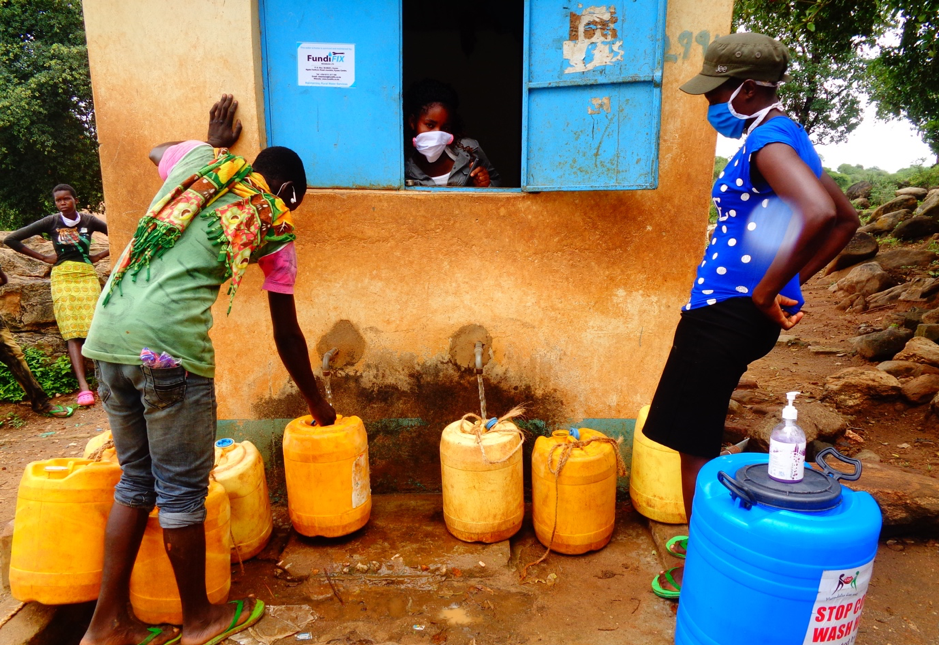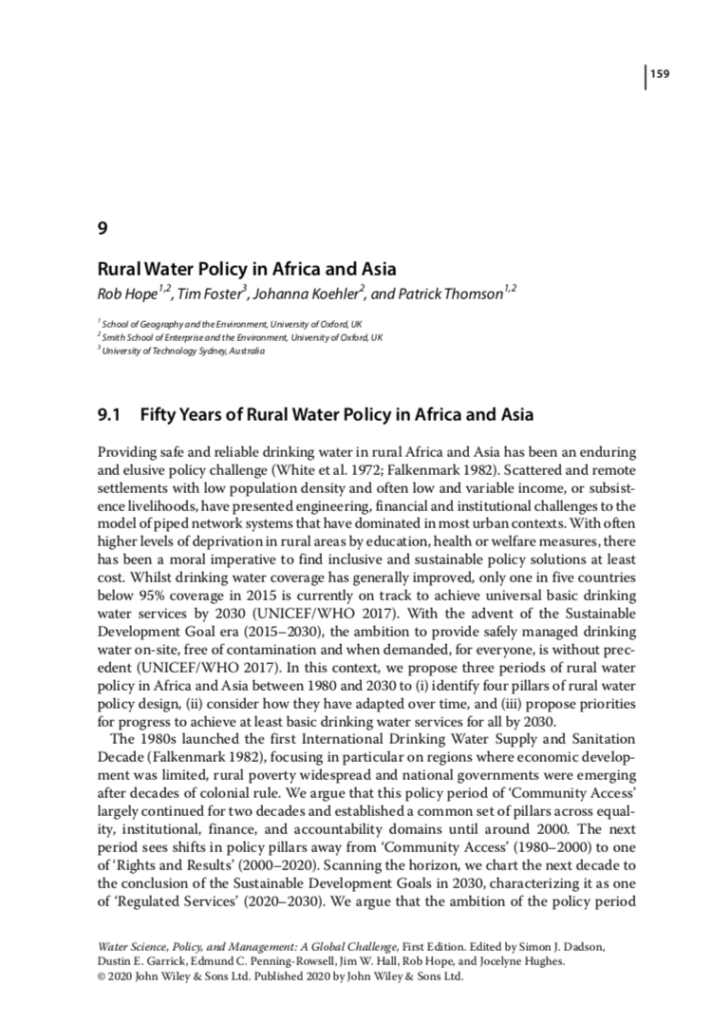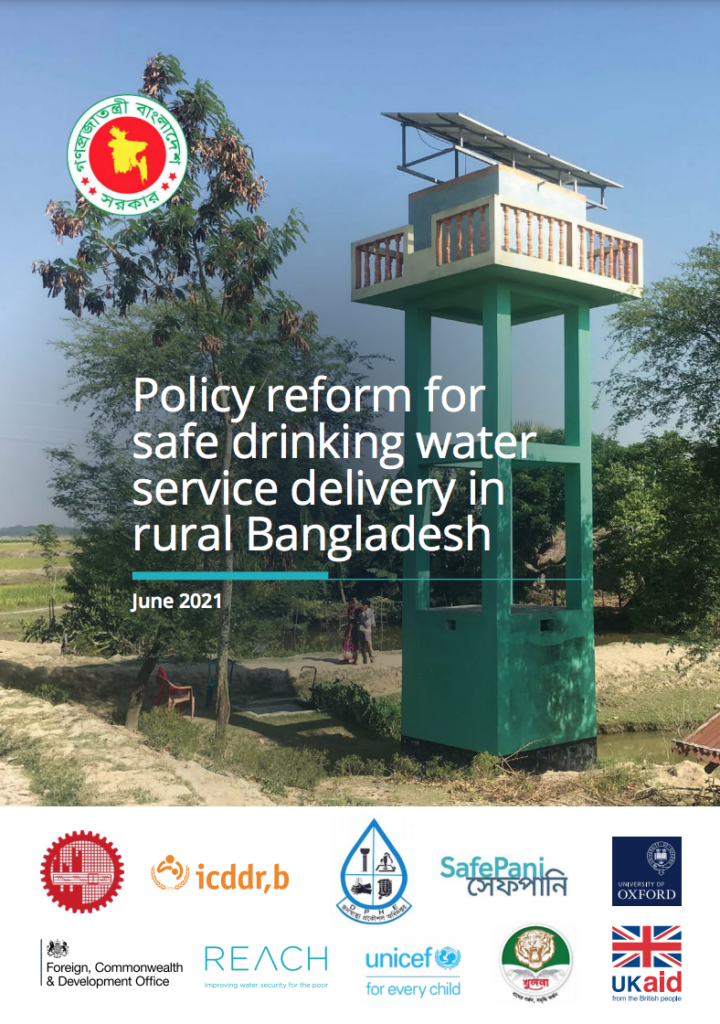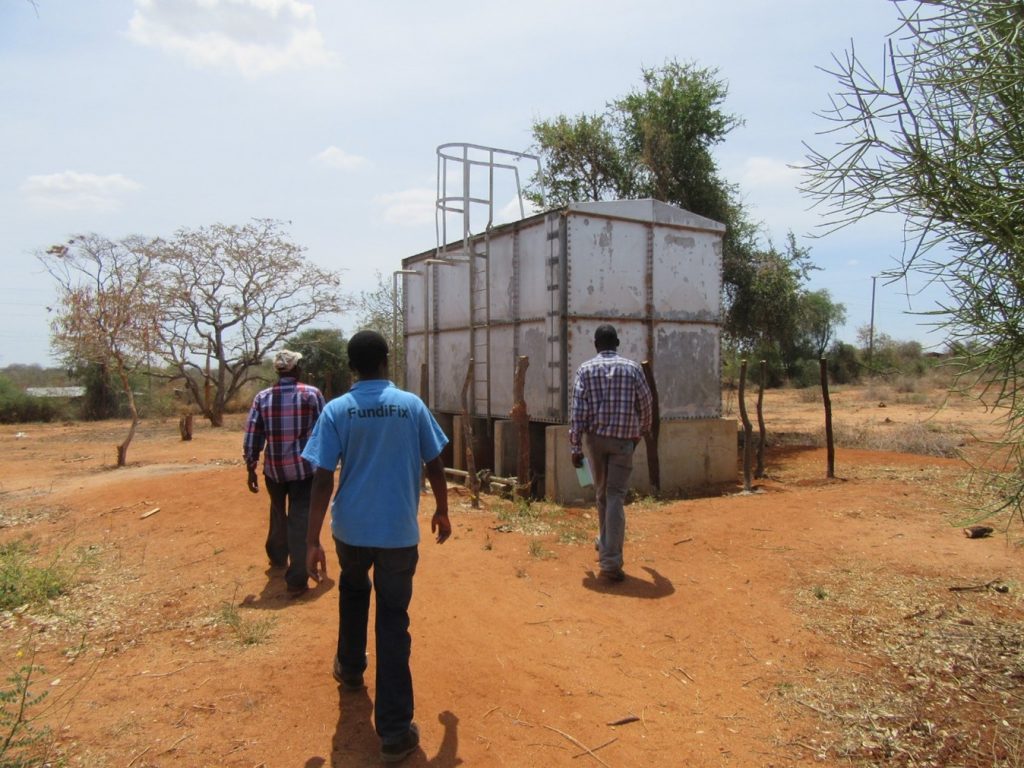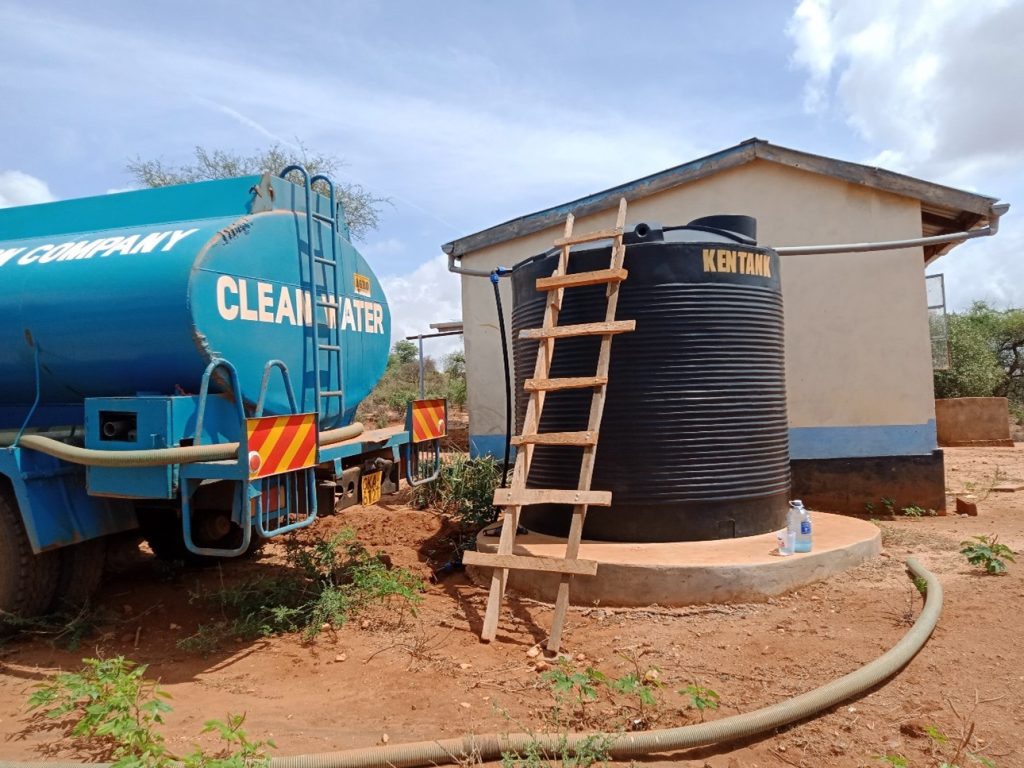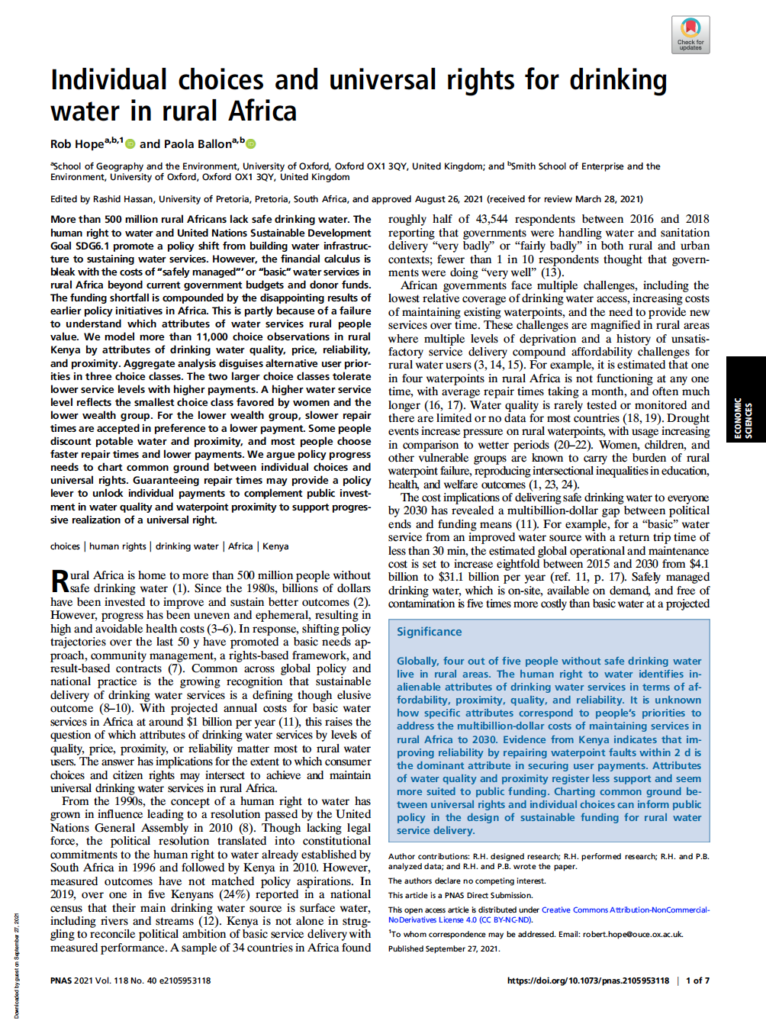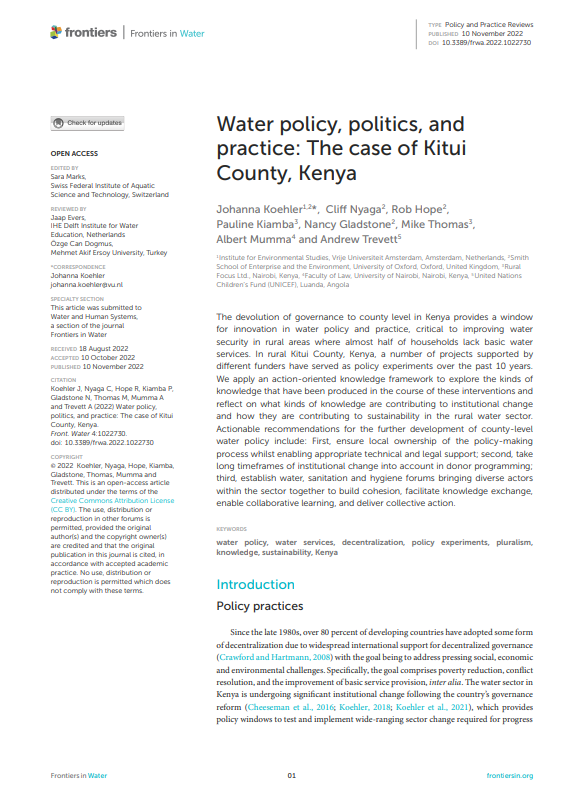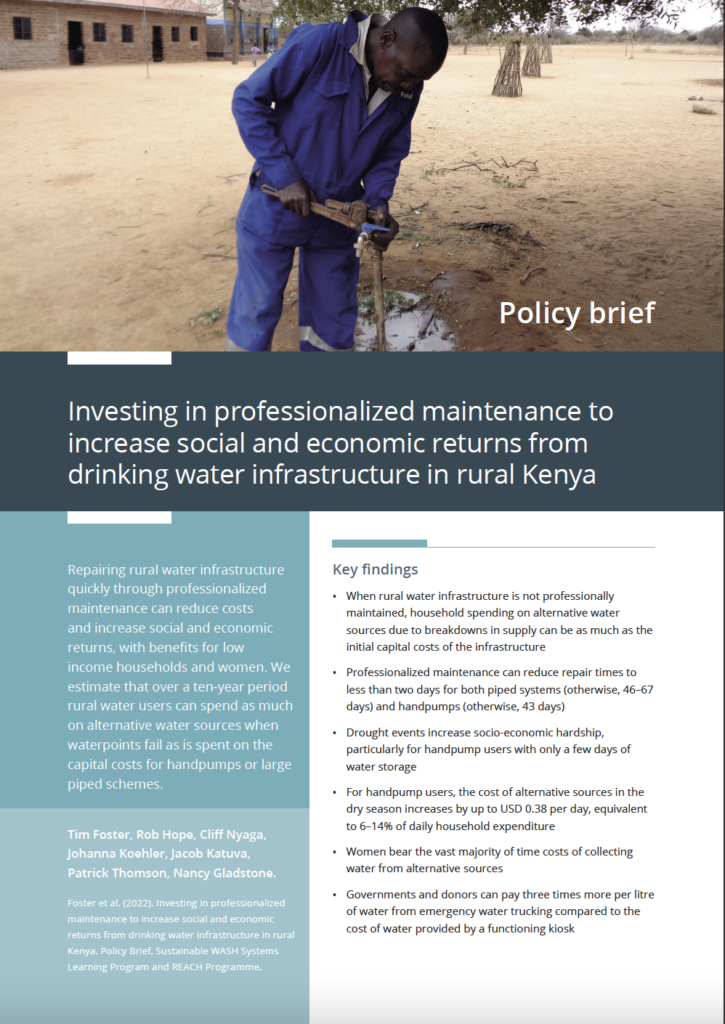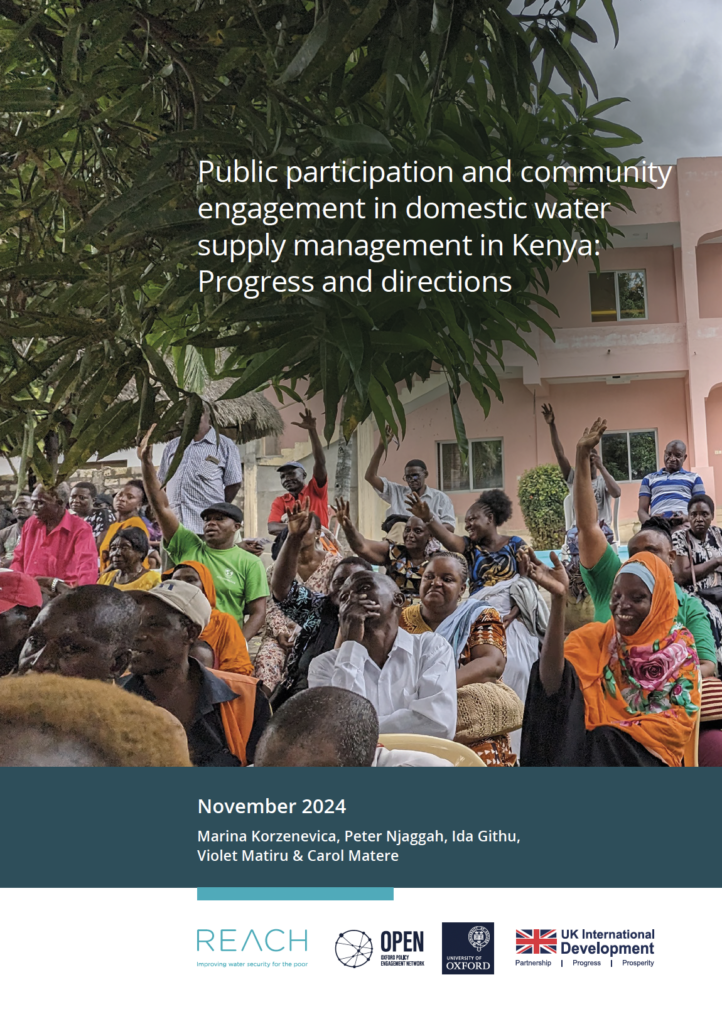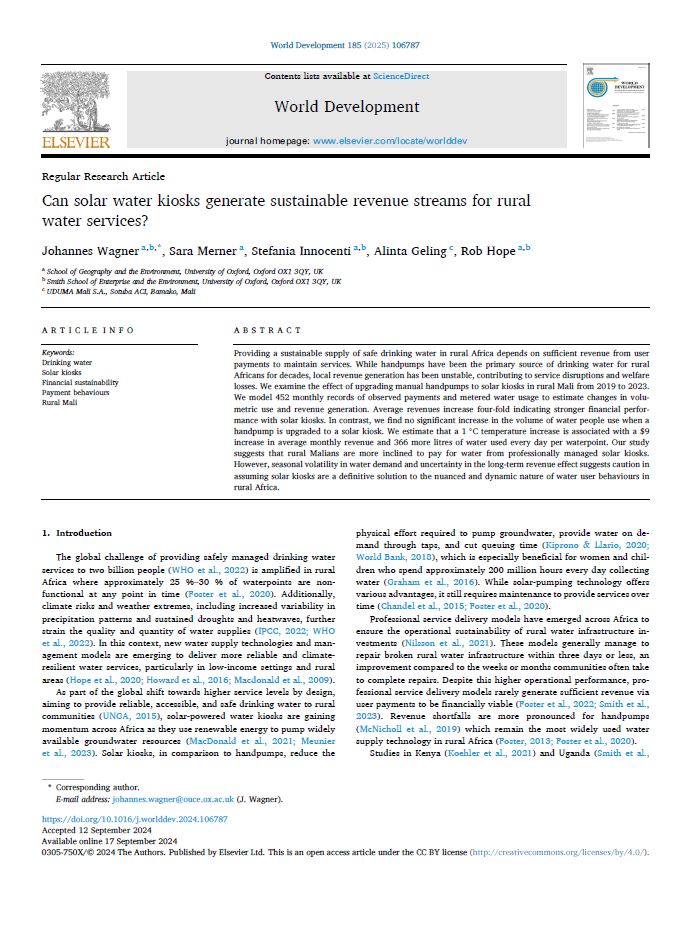
Improving water security for the poor
Strengthening institutions for water security
Institutions govern how decisions, information, incentives and behaviour can promote or constrain water security outcomes for the poor. Without inclusive governance, reflecting the priorities of the poor, progress may remain inequitable in how water resources and services are managed, monitored, and allocated between competing demands.
Our research is exploring how governments and researchers can collaborate to support institutional change in policy and practice. This includes the gap in providing safe water to schools and clinics, reducing river health hazards for riparian communities in cities, or the growth in the self-supply of water of uncertain quality in rural villages.
Our work so far has offered new thinking around institutions to build water security sustainably at scale. In Kenya, we have examined new opportunities to pool risks for rural water security through re-allocating responsibilities between the state, market and communities. We are now expanding this work in Bangladesh, in partnership with UNICEF.

